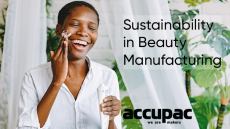In-vitro testing for water resistance in sunscreens
sunscreens has been developed that could provide a cost efficient
alternative to in-vivo tests whilst reducing the need for
human volunteers.
The increasing complexity of sunscreen products brings a growing number of parameters to be tested, and therefore an increasing interest in using in vitro methods, according to researchers.
The study was conducted by seven international industrial laboratories and testing institutes and was an attempt to develop a simple, reproducible and reliable in vitro method to test the water resistance of sun care products.
The test involved assessing the SPF of sunscreen products before and after water immersion, and then determining the percentage of SPF retention.
If SPF retention is higher then 50 per cent the product is deemed water resistant, less than 50 per cent is deemed not water resistant.
The method is similar to the in-vivo method where subjects are immersed for either 20 or 40 minutes, and exposed to doses of irradiation before and after the immersion.
According to researchers this is a high stress procedure for the human volunteers making a reproducible in-vitro water resistance testing method a priority.
The laboratories tested ten products, including different product formulations, such as gel, oil-in-water or water-in-oil emulsions, with SPF values from 12-50.
Polymethyl methacrylate (PMMA) plates were chosen to replace human skin although the researchers do concede that they do not exactly replicate the in-vivo situation.
The sunscreen products were applied to the PMMA plates and then immersed in water.
Measurements of SPF were taken after 5, 20 and 40 minutes.
The researchers found that the conductivity of the water altered significantly the water resistance of the products, noting that osmosed water should be used for the experiments as tap water varies considerably geographically and seasonally.
The reproducibility of the method was gauged by investigating the results from all seven laboratories on the same product, and in addition comparing these to available in-vivo results on the products.
The team found that for the non-water resistant product results from all seven laboratories are very similar and match very closely the in-vivo values.
For the standard water resistant sun product P2 (used as a standard by Colipa to test water resistance in-vivo) , the difference in values between the laboratories was larger.
Nonetheless, the water resistant claims would have been confirmed by all laboratories after 20 minutes immersion; however one of the laboratories did not find water resistance after 40 minutes immersion, according to the authors.
The authors conclude that the in-vitro method proposes for the first time a 'relevant, convenient and ethical tool for the development of water resistance testing of sun products that aims to match the best performance in-vivo'.












